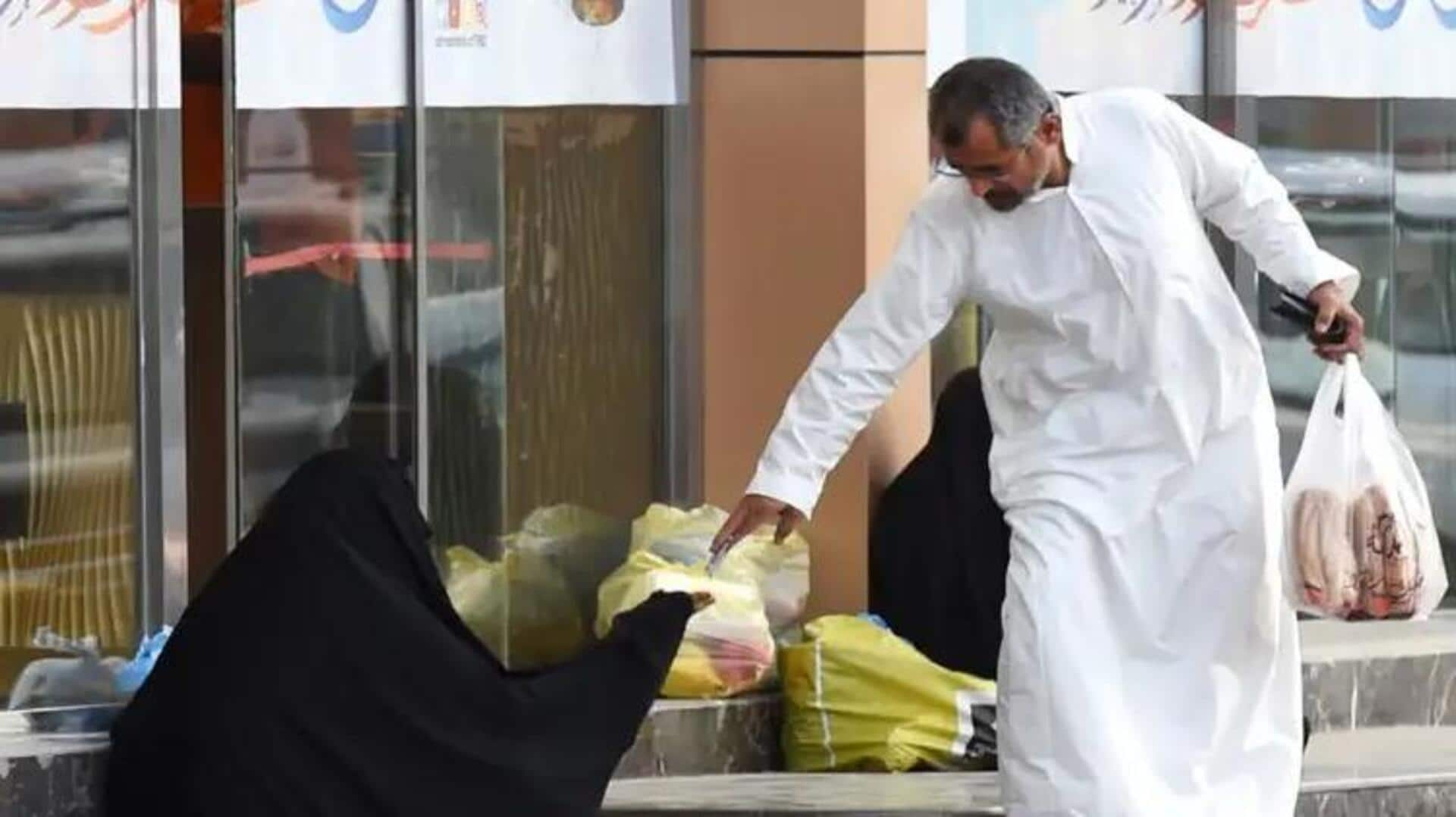
Why Saudi Arabia is furious over Pakistan's 'export' of beggars
What's the story
Saudi Arabia has issued a stern warning to Pakistan regarding the influx of beggars entering the kingdom under the guise of religious pilgrimage. The kingdom has warned Islamabad that failure to address this issue could negatively impact their Hajj pilgrims. A report from last year revealed that over 90% of panhandlers arrested abroad are from Pakistan. Many of them were arrested at holy sites, including the Grand Mosque in Mecca.
Countermeasures
Pakistan's response to Saudi Arabia's concerns
In response to Saudi Arabia's concerns, Pakistan's Ministry of Religious Affairs is introducing the "Umrah Act." This legislation aims to regulate travel agencies facilitating religious trips and bring them under legal scrutiny. The move comes after a similar warning from the kingdom last year about an increase in beggars entering Saudi Arabia during the Hajj pilgrimage.
Migration trend
Pakistan's overseas secretary reveals beggar migration trend
Overseas Ministry Secretary Zulfikar Haider revealed to the Senate Standing Committee on Overseas Pakistanis that beggars constitute a significant portion of those leaving Pakistan. He stated, "Beggars are leaving Pakistan en masse...exploiting Umrah and visit visas to beg from pilgrims abroad." According to Haider, approximately three million Pakistanis are in Saudi, 1.5 million in the United Arab Emirates, and 0.2 million in Qatar. Haider also claimed that the movement of a large number of beggars has fueled "human trafficking."
Visa concerns
Saudi Arabia's distress over beggar situation
Saudi Arabia has expressed distress over Umrah visas being granted to such individuals, as they are not considered skilled laborers. In March, the Dawn reported that Gulf countries are hiring more people from countries like Bangladesh because of the "deplorable standards" of the Pakistani workforce. They also alleged that Pakistanis are to blame for the rising crime rate among UAE workers. In December, the UAE had extended its visa ban on visitors from Pakistan.
New destinations
Beggars's migration linked to human trafficking
Haider stated that Japan has recently emerged as a new destination for such visitors. He emphasized Pakistan's historical role in exporting skilled labor and expressed optimism that foreign remittances would increase when professionals went abroad. In July, the International Monetary Fund (IMF) transferred $1.2 billion to Pakistan, as part of the $3 billion bailout program for nine months to support the government's efforts to stabilize the country's ailing economy.